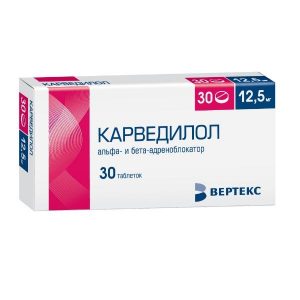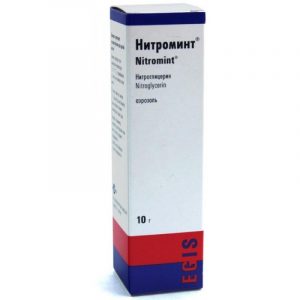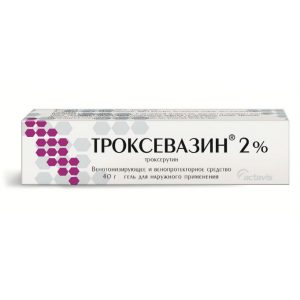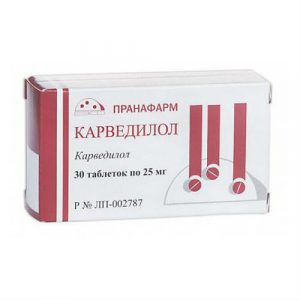Description
Release form
Tablets p9roduct 97777
Packing
30 ampoules of 2 ml.
Pharmacological action
Iloprost, the active ingredient in the preparation Ventavis, is a synthetic analogue of prostacyclin. The drug inhibits platelet aggregation, platelet adhesion and the release of soluble adhesion molecules expand the arterioles and venules, increase the density of capillaries and reduce the increased vascular permeability caused by mediators such as serotonin or histamine at the microvasculature, which stimulate endogenous fibrinolytic activity after endothelial lesion inhibition leukocyte infiltration in damaged tissues, as well as a decrease in factor release tumor necrosis alpha.
After inhalation of Ventavis, direct vasodilation of the pulmonary arterial bed is observed, followed by a significant improvement in indicators such as pulmonary artery pressure, pulmonary vascular resistance, cardiac output, and oxygen saturation of mixed venous blood. The effect on systemic vascular resistance and systemic blood pressure was minimal.
Pharmacokinetics
Absorption. In case of inhaled administration of iloprost to patients with pulmonary hypertension (the dose of iloprost delivered through the mouthpiece is 5 μg, the duration of inhalation is from 4.6 to 10.6 min), the serum Cmax of the drug was determined at the time of the end of inhalation and amounted to 100-200 pg / ml. The concentration of the drug decreases as the drug is eliminated (T1 / 2 is approximately 5 25 min). In the interval from 30 minutes to 1 hour after the completion of inhalation, iloprost is no longer determined in the central chamber (the sensitivity limit of the method is 25 pg / ml).
distribution. Currently, there are no studies performed with the inhalation use of the drug.
After iv infusion, the apparent Vss in healthy volunteers ranged from 0.6 to 0.8 L / kg. In the concentration range from 30 to 3000 pg / ml, the total binding of iloprost to plasma proteins does not depend on the concentration and is approximately 60%, of which 75% is associated with binding to albumin.
Metabolism. Currently, there are no studies performed with the inhalation use of the drug. In vitro studies indicate a similar metabolism of iloprost in the lungs, both after iv and after inhalation. After iv administration, iloprost is more metabolized, mainly through -Oxidation of the side carboxyl chain. In unchanged form, the drug is not excreted. The main metabolite is tetranoriloprost, which is found in urine in a free form and conjugated form. As shown by experimental studies in animals, tetranoriloprost is pharmacologically inactive.
According to the results of in vitro studies, the participation of cytochrome P450 in the metabolism of iloprost is minimal.
Withdrawal. Currently, there are no studies performed with the inhalation use of the drug. Elimination of iloprost after iv infusion in subjects with normal renal and hepatic function in most cases is characterized by a two-phase profile with average T1 / 2 from 3 to 5 minutes and from 15 to 30 minutes. The total Cl of iloprost is about 20 ml / kg / min, which indicates the presence of additional extrahepatic metabolism of iloprost.
A mass balance study was performed using 3H-labeled iloprost in healthy subjects. After intravenous infusion, the excretion of total radioactivity was 81%, while 68% was excreted in the urine, and 12% – with feces. The elimination of metabolites occurs in two phases, for which the calculated T1 / 2 are about 2 and 5 hours (plasma) and about 2 and 18 hours (urine).
Impaired renal function
In a study of iv administration of iloprost, it was shown that in patients with end-stage renal failure undergoing periodic dialysis, the drug Cl (average Cl = 5 ± 2 ml / min / kg) is significantly lower than patients with renal failure not receiving periodic dialysis (average Cl = 18 ± 2 ml / min / kg).
Impaired liver function
Since iloprost is more metabolized in the liver, changes in liver function affect the plasma concentration of the drug. The results of the study with iv administration of the drug included data from 8 patients with cirrhosis. The average Cl of iloprost was estimated to be 10 ml / min / kg.
Age and gender
Age and gender have no clinical significance for the pharmacokinetics of iloprost.
Contraindications
pregnancy and lactation are pathological conditions in which the effect of the drug on platelets can increase the risk of bleeding (including peptic ulcer and duodenal ulcer in the acute stage, trauma, intracranial hemorrhage) severe coronary heart disease or unstable myocardium in the previous 6 months decompensated heart failure in the absence of proper medical supervision severe arrhythmias suspected stagnation of blood in the lung their cerebrovascular complications (including transient ischemic attack, stroke) in the previous 3 months due to pulmonary hypertension, pulmonary veno-occlusive disease congenital or acquired valvular disease with clinically significant impairment of myocardial function, which are not caused by pulmonary hypertension, hypersensitivity to iloprost or other components of the drug in children and adolescents under 18 years of age.
Caution: impaired liver function and renal failure in patients requiring dialysis, arterial hypotension, COPD, severe bronchial asthma.
Pregnancy and lactation
Women with pulmonary hypertension should avoid pregnancy because this can lead to a life-threatening exacerbation of the disease. There is insufficient data on the use of Ventavis in pregnant women. When pregnancy occurs, Ventavis should be prescribed when the expected benefit to the mother outweighs the possible risk to the fetus.
Since it has not been established whether iloprost and its metabolites are excreted in breast milk, breastfeeding should be discontinued if it is necessary to use the drug during lactation.
The composition of
in ampoules of 2 ml, 1 ml of the solution contains 10 ?g of iloprost.
Dosage and Administration
Inhalation. The ready-to-use solution is administered through an appropriate inhalation device (nebulizer).
Prior therapy should be adjusted according to the individual needs of the patient (see Interaction). Ventavis is used for long-term therapy.
Recommended doses of
for adults. At the beginning of Ventavis treatment, the first inhaled dose of iloprost should be 2.5 μg (delivered through the mouthpiece of the inhaler). If the patient tolerates treatment well, the dose of iloprost should be increased to 5 μg and maintained during subsequent inhalations. In case of poor tolerance, a dose of 2.5 mcg should be returned.
Iloprost inhalation should be performed 6 to 9 times a day, in accordance with the individual need of the patient and tolerance to the drug.
Depending on the required dose delivered through the mouthpiece and the type of nebulizer, the duration of the inhalation session is approximately 4 to 10 minutes.
Patients with impaired liver function. Elimination of iloprost is reduced in patients with impaired liver function. In order to avoid undesirable accumulation of the drug during the day, when selecting the initial dose of the drug in these patients, special precautions must be taken. Careful titration of the initial dose with an interval between administrations of 3-4 hours is recommended.
The initial dose should be 2.5 μg with an interval between administrations of 3-4 hours (which corresponds to the appointment a maximum of 6 times a day). Subsequently, a cautious decrease in the intervals between administrations is possible, taking into account the individual tolerance of the drug. If a further increase in dose to 5 μg is indicated, the intervals between administrations at the initial stage should be 3-4 hours, then they can be reduced taking into account individual tolerance. Further accumulation of the drug after several days of therapy seems unlikely due to a night break in use.
Patients with impaired renal function. Patients with Cl creatinine> 30 ml / min do not need to adjust the dose of the drug. Use of the drug Ventavis in patients with Cl creatinine
Instructions for administering
For each inhalation, a new ampoule of the drug Ventavis must be used. The contents of the ampoule must be completely transferred to the nebulizer chamber immediately before use. The hygiene and cleaning instructions provided by the device manufacturer must be strictly observed.
Nebulizer solution not used for inhalation must be poured.
In general, nebulizers that are suitable for inhalation therapy with Ventavis solution are certified compressor-type nebulizers, ultrasonic or nebulizers based on vibration technology.
Nebulizers suitable for inhaled administration of iloprost should deliver iloprost via the mouthpiece at a dose of 2.5 or 5 μg over a period of approximately 4 to 10 minutes. The mass-median aerodynamic diameter of aerosol particles is 1 5 μm.
To minimize the accidental effects of the drug, it is recommended to use Ventavis in nebulizers, equipped with a filter or inhalation-starting system, as well as well ventilate the room.
Switching to another type of inhaler should be done under the supervision of a physician.
Drug Interactions
Since no compatibility studies have been conducted, Ventavis should not be mixed when administered with other drugs. Iloprost may enhance the antihypertensive effect of vasodilators and other antihypertensive drugs. Caution should be exercised while using Ventavis with vasodilator and antihypertensive drugs, because dose adjustment may be required.
Since iloprost inhibits platelet function, its use in conjunction with anticoagulants (such as heparin, anticoagulants from the coumarin derivative group), or other antiplatelet agents (such as acetylsalicylic acid, NSAIDs, phosphodiesterase inhibitors and vasodilators from the nitrate group) may increase the risk of bleeding. “Side effects”). Patients receiving anticoagulant therapy or other platelet aggregation inhibitors in accordance with accepted medical practice, should be constantly monitored for coagulation parameters. The previous administration of acetylsalicylic acid at a dose of up to 300 mg / day for 8 days does not affect the pharmacokinetics of iloprost. In a study in animals, it was found that the administration of iloprost can lead to a decrease in Css in plasma of tissue plasminogen activator (TAP). The results of studies in humans show that iloprost infusion does not affect the pharmacokinetics of digoxin administered orally, and iloprost does not affect the pharmacokinetics of concurrently prescribed TAPs.
In animal experiments, the vasodilating effect of iloprost was weakened if corticosteroids were previously introduced, while the inhibitory effect on platelet aggregation remained unchanged. The significance of these data for the use of Ventavis in humans is unknown. Although clinical studies have not been conducted, in vitro studies evaluating the possible inhibitory effect of iloprost on the activity of cytochrome P450 isoenzymes showed that a significant suppression of drug metabolism mediated through these isoenzymes under the influence of iloprost on them is unlikely.
Overdose
No cases of overdose have been reported.
Symptoms: In the event of an overdose, hypotensive reactions, as well as headaches, hot flashes, nausea, vomiting and diarrhea can be expected. Elevation of blood pressure, bradycardia or tachycardia, pain in the extremities or back may also be noted with drug overdose.
Treatment: discontinue iloprost, monitor patient status, and conduct symptomatic therapy. The specific antidote is unknown.
Storage conditions
At a temperature not exceeding 30 ° C.
Shelf life
2 years.
Deystvuyushtee substance
Iloprost
Terms and conditions
prescription
solution for inhalation
Possible product names
Ventavis 10 μg / ml 2 ml No. 30 amp
Ventavis ampoules 10 μg / ml, 2 ml, 30 pcs.
Ventavis solution / inhal 10mkg / ml amp 2ml N30
Bayer Pharma AG, Germany




